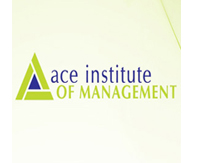Overview
The Malpi Institute, situated on Subarna Shamsher Marg in Baluwatar, Kathmandu, Nepal, stands out with its captivating old-world charm. Since its inception in 2000, it has been a beacon of student-focused learning, quickly gaining a reputation for educational excellence. This institute is a key component of the Malpi Group of Educational Institutions.
Malpi Institute offers the esteemed two-year General Certificate of Education (GCE) A-Levels, accredited by the University of Cambridge, UK. The curriculum spans Science, Commerce, and Arts, aligning with plus two levels in India and Nepal, providing a diverse educational experience. Malpi Institute emphasizes creating an ideal higher education environment, backed by a team of diverse educators and professionals and is recognized by Tribhuvan University and globally.
The institute boasts highly qualified faculty, advanced facilities, and a range of extracurricular activities, including sports and various clubs. It conducts A and AS level exams biannually, with a grading system from A* to U. Admission is open to students completing SEE/GCSE/CBSE or equivalent courses, with scholarships available for meritorious yet financially constrained students. The GCE A-Level program at Malpi includes Non-Science courses like Economics, Business Studies, and Psychology, and Science courses such as Biology, Chemistry, and Physics. This comprehensive approach prepares students for diverse careers and higher education opportunities in their chosen fields.
Educational Programs and Curriculum
Malpi Institute offers the prestigious two-year General Certificate of Education (CIE) A-Levels, accredited by the University of Cambridge, UK. The curriculum spans across Science, Commerce, and Arts streams, aligning with the plus two levels of various boards in India and Nepal, ensuring a comprehensive and diverse educational experience.
Mission Statement
The core mission of Malpi Institute is to create an optimal environment for higher education. Founded by a group of diverse educators, business professionals, and visionaries, the institute is dedicated to elevating the standard of education in Nepal.
Recognition and Accreditation
The A-Level qualifications from Malpi Institute are recognized by Tribhuvan University (TU) as equivalent to the Intermediate Level or the NEB +2 program. This recognition extends globally, as the degree is accepted by universities worldwide. The program is registered with Nepal's Ministry of Education and the British Council and is also a member of the Cambridge Educators Association Nepal (CEAN).
Key Features of Malpi Institute
- Highly skilled and experienced faculty
- State-of-the-art classrooms and teaching facilities
- Advanced science and computer labs
- Comprehensive E-library and modern learning resources center
- Convenient central location in Kathmandu
- Efficient transportation services
- Facilities for sports including a basketball court
- Participation in the Duke of Edinburgh's International Awards
- Diverse range of hobby clubs like Computer, Arts & Photography, Sports, Journalism, and Gavel
- Well-equipped arts room
Engagement and Opportunities
Malpi Institute is not just an academic hub; it's a place where students can explore their passions, engage in extracurricular activities, and develop holistically. The range of clubs and facilities ensures that students have ample opportunities to nurture their talents alongside their academic pursuits.
Malpi Institute's A-Level Examination and Admission System
Examination System: A-Level Assessments
At Malpi Institute, A and AS level final examinations are scheduled biannually, in May/June and October/November. Results for these critical assessments are typically published in August for the May/June session and in January for the October/November session. This consistent and timely evaluation process ensures students and educators can efficiently track and respond to academic progress.
Grading System:
The grading system at Malpi Institute is comprehensive and follows a clear scale ranging from A* to E, with U indicating ungraded or incomplete performance. A* represents exceptional achievement, while E denotes the minimum acceptable performance. This system requires students to enroll in at least four subjects, accumulating 3.5 credits, including a mandatory half-credit English General Paper. Students have the flexibility to take additional credits based on their interests and capabilities, fostering a personalized and challenging educational experience.
Admission Guidelines: Eligibility Criteria
Admission to the A-Levels program at Malpi Institute is open to students who have completed SEE/GCSE/CBSE or equivalent courses. The institute places a high value on academic ability and potential to excel in a rigorous academic environment. Selection is based on a comprehensive evaluation system aimed at identifying and nurturing a highly motivated and capable student body.
Scholarship Information:
Malpi Institute is committed to making quality education accessible. Scholarships are available for students who demonstrate exceptional merit but face financial constraints. These scholarships, though limited in number, provide deserving candidates with an opportunity to excel academically. Applicants for scholarships must provide evidence of both financial need and the academic prowess necessary to achieve top grades.
Malpi Institute's GCE A-Level Courses:
GCE A-Level Non-Science Courses
Malpi Institute offers a diverse range of courses in the General Certificate of Education (GCE) A-Level Non-Science stream. These courses are designed for students who are inclined towards arts, humanities, and commerce. The non-science stream typically includes subjects like:
- Economics: Understanding the fundamentals of economic theory and its practical applications.
- Business Studies: Insights into the world of business, management, and entrepreneurship.
- Psychology: Exploring human behavior and mental processes.
- Sociology: Study of social behavior, society, patterns of social relationships, and culture.
- Mathematics: For students interested in higher-level mathematics but not pursuing a science major.
- English Literature: Delving into classic and modern literary works and analysis.
- Accounting: Basics of financial accounting, management accounting, and financial management.
- Law: An introduction to legal principles, systems, and practices.
- Art and Design: Encouraging creativity and expression through various artistic mediums.
- Media Studies: Understanding media, cultural studies, and communication.
These courses are tailored to develop critical thinking, analytical skills, and a deep understanding of various non-scientific disciplines.
GCE A-Level Science Courses
For students inclined towards scientific subjects, Malpi Institute offers a comprehensive GCE A-Level Science stream. This stream is well-suited for those aiming for careers in science, technology, engineering, and mathematics (STEM). The science stream includes subjects such as:
- Biology: Study of living organisms, their structure, function, growth, and evolution.
- Chemistry: Understanding the composition, structure, properties, and changes of matter.
- Physics: Exploration of matter, energy, and the fundamental forces of nature.
- Mathematics: A more intense focus on advanced mathematical concepts and applications.
- Computer Science: Covering the principles of computing, programming, and information technology.
- Environmental Science: Studying the environment and solutions to environmental problems.
- Psychology: For a scientific understanding of mental processes and behavior.
- Further Mathematics: An additional subject for those who wish to delve deeper into mathematical theories and applications.
These courses are designed to provide a solid foundation in scientific principles, preparing students for further education and careers in scientific fields.
Contact Malpi Institute's administrative office for detailed information on the course, admissions, location, fees, scholarships, facilities, counseling, or eligibility.















